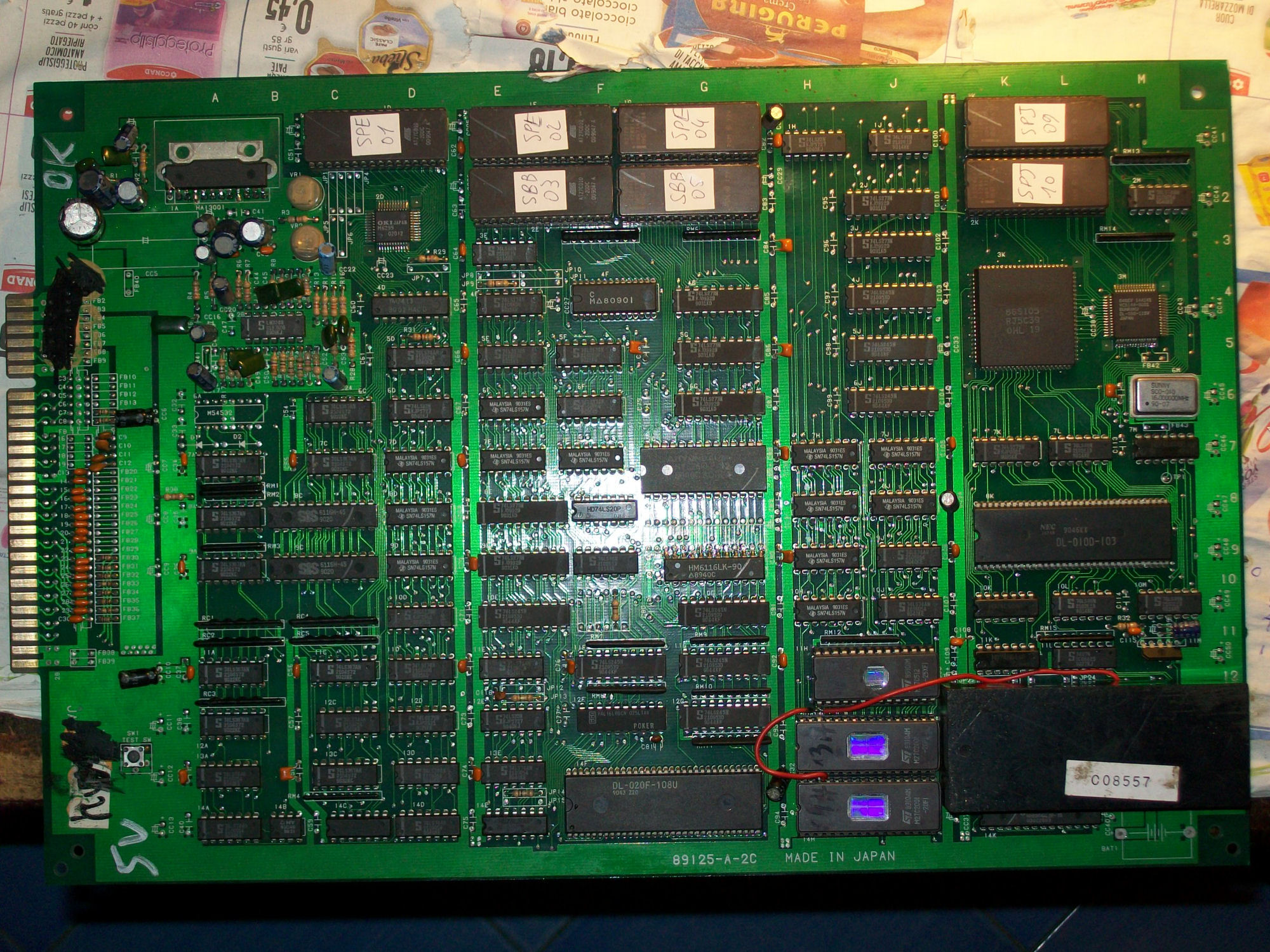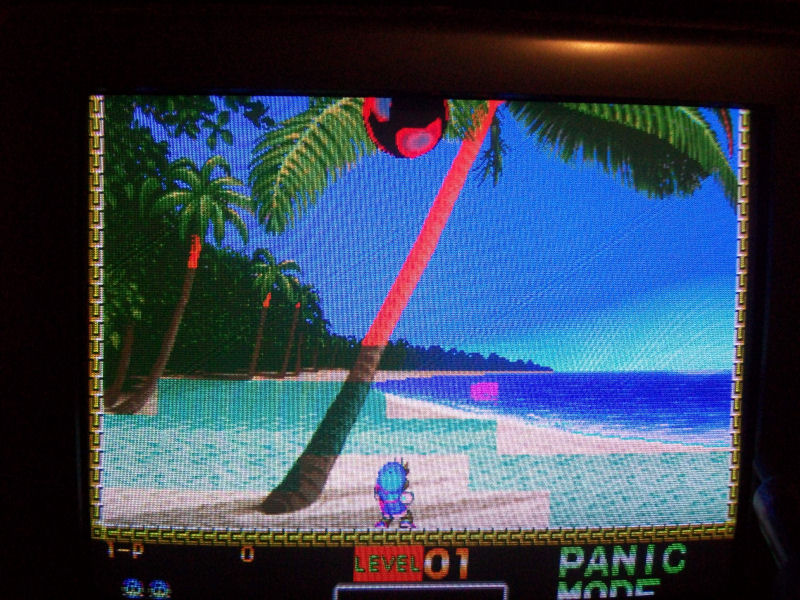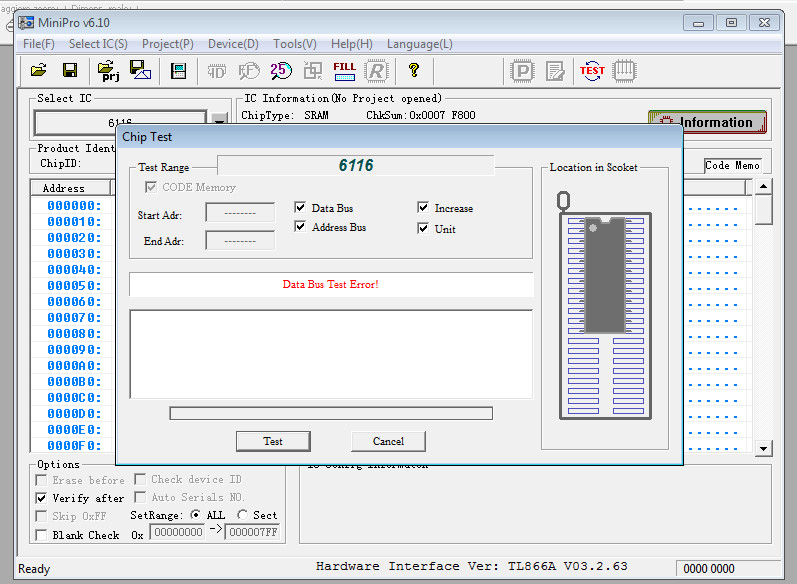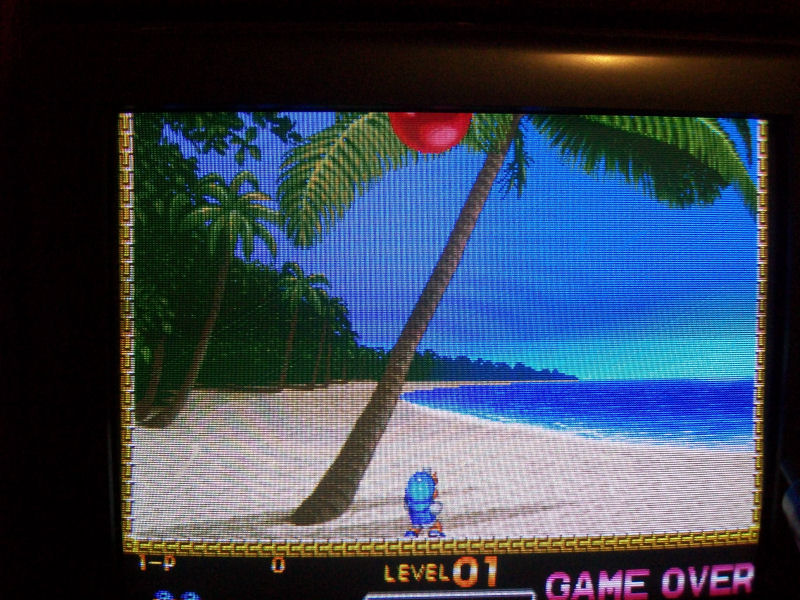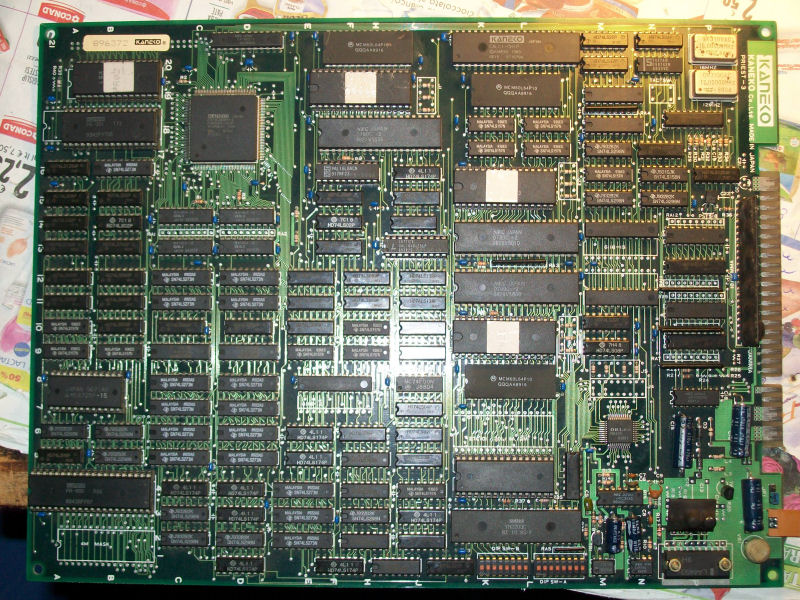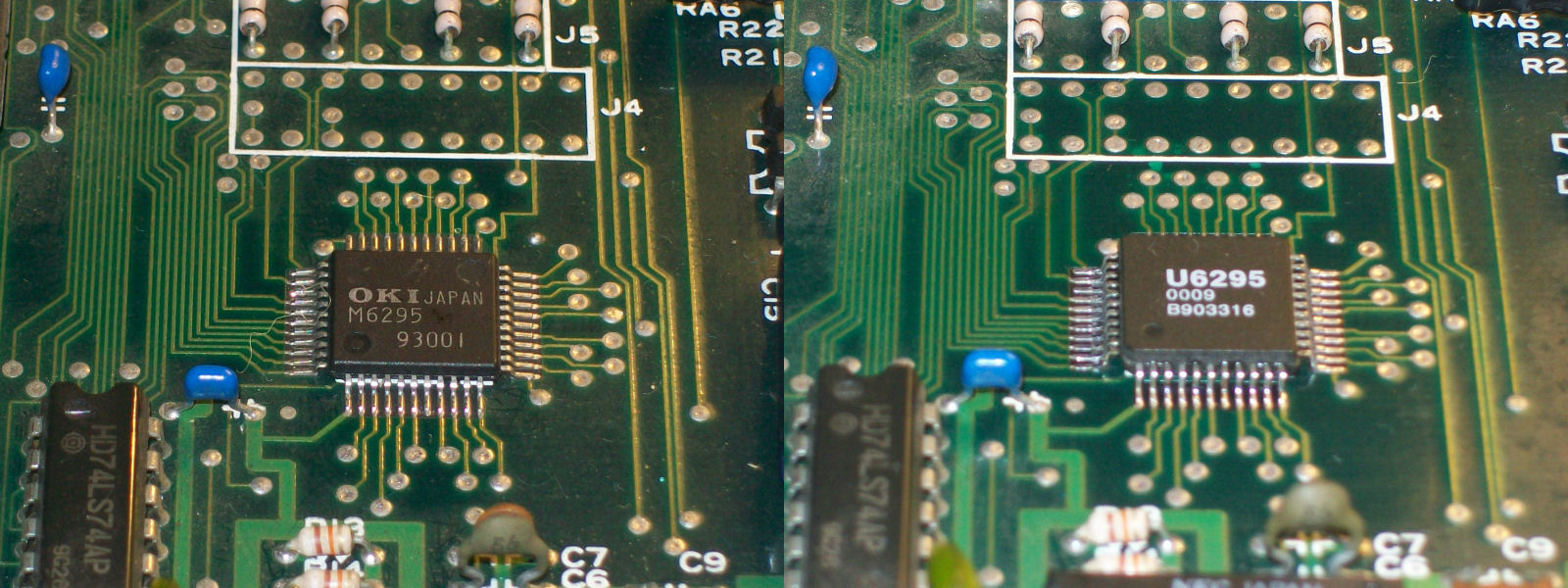Got this original Super Pang PCB from my friend ‘Mikidaffy1983’
He asked me to desuicide it (picture above is actually from the board already desuicided) and, as usual, I followed instruction here:
https://www.arcadecollecting.com/dead/pre-cps.html
All went good but when I tried the board I noticed wrong colors on some backgrounds/sprites:
Studying a bit the hardware I found that the color RAMs are located @8C and @9C (two 6116) so I started to analyze them with my logic probe, this revealed that some data lines of 6116 @8C were inactive.Desoldered and tested it out-of-circuit confirmed it was bad:
Fitted a good 6116 RAM brought colors to normal.

